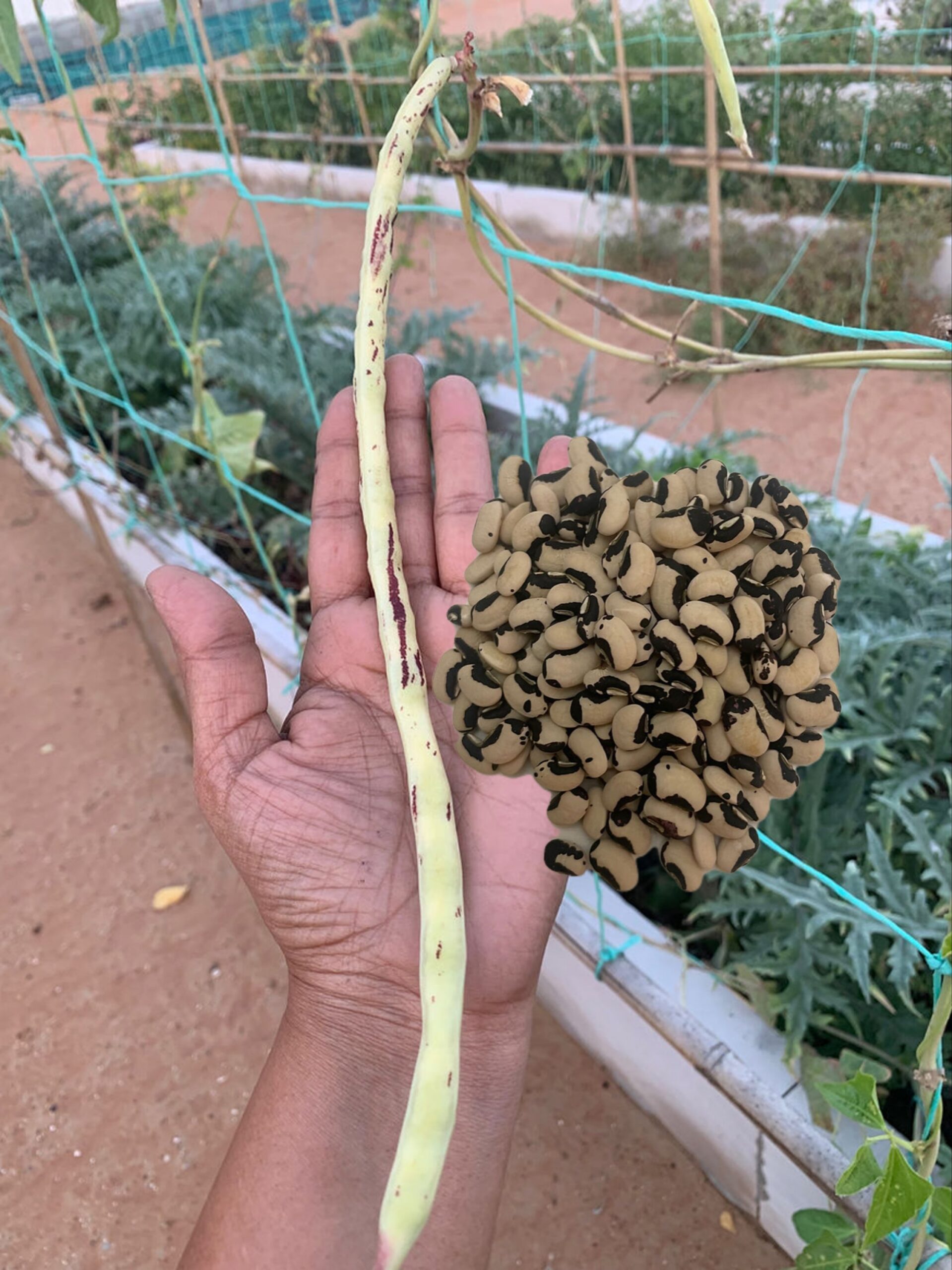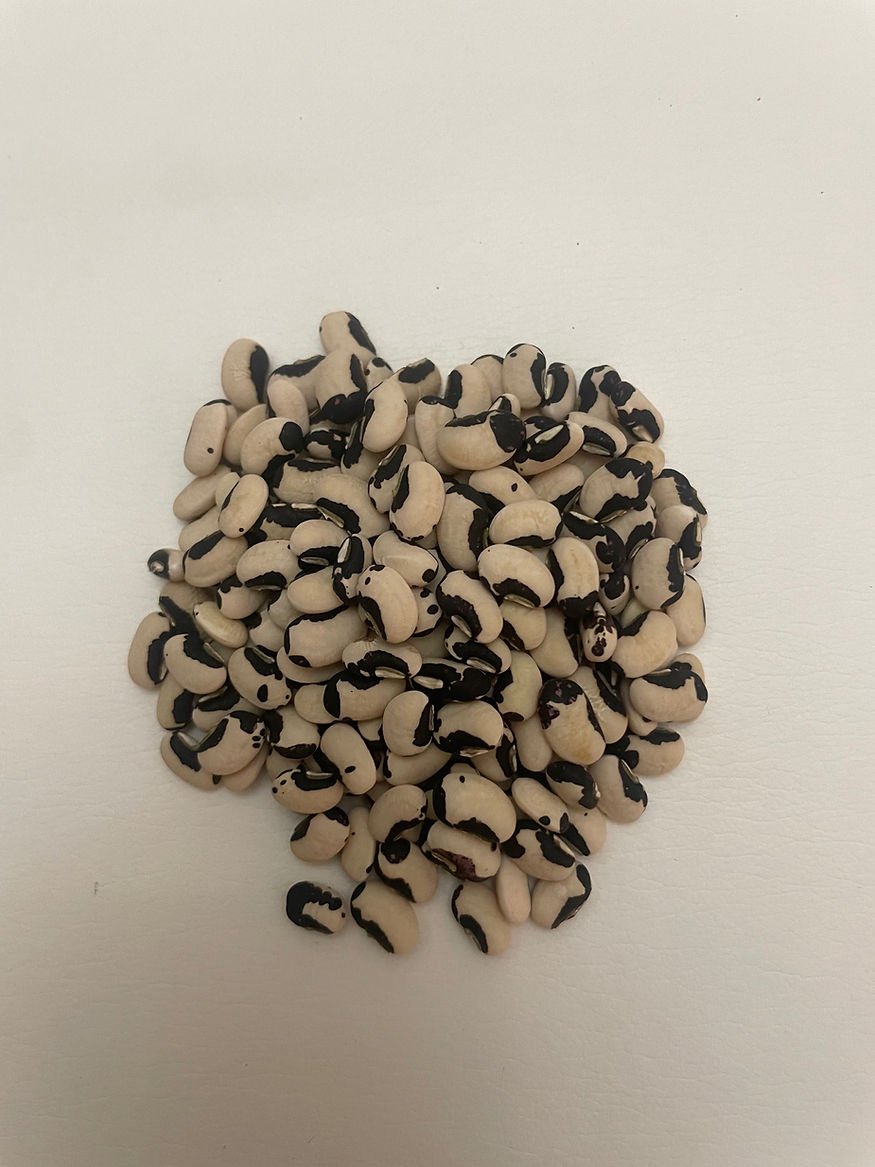Tiger Cowpea (scientific name: *Vigna unguiculata*), also known as *Black-eyed pea* or *Southern pea*, is a legume primarily grown for its edible seeds, which are highly nutritious. The term “Tiger cowpea” refers to varieties with distinctive markings, typically dark spots or stripes on the seed coat that resemble a tiger’s fur pattern.
Key Features:
– Scientific Name:Vigna unguiculata
– Common Names: Tiger cowpea, Black-eyed pea, Southern pea
– Plant Type: Legume (Annual)
– Growth Habit: It can be grown as a bush or climbing plant.
– Seed Color: Varieties may have cream, white, or pale-colored seeds with darker markings, resembling tiger stripes.
Cultivation and Growing Conditions:
– Climate: Warm, subtropical to tropical climates. The plant is drought-tolerant and thrives in regions with moderate to low rainfall.
– Soil: Well-drained, sandy loam to loamy soils with a pH of 6.0–7.0.
– Temperature: Best grown in temperatures between 25–35°C (77–95°F).
– Watering: Requires moderate water; over-watering can lead to root rot.
– Planting Season: In tropical regions, it is typically planted during the rainy season, but in temperate zones, it can be grown in summer.
Nutritional Value:
– Protein: High in protein, making it a good substitute for meat in vegetarian diets.
– Carbohydrates: Rich in complex carbohydrates, providing energy.
– Fiber: Good source of dietary fiber.
– Vitamins and Minerals: High in iron, folate, and potassium.
Uses:
– Culinary: Commonly used in soups, stews, salads, and as a side dish. It can be cooked with rice or served with meat and vegetables. It’s a staple in Southern cuisine in the United States, as well as in African and Indian dishes.
– Agricultural: Used in crop rotation due to its ability to fix nitrogen in the soil, improving soil fertility for subsequent crops.
Varieties:
There are several different varieties of cowpeas, each with its own characteristics. Some varieties are specifically bred for their distinctive seed markings, including those that resemble tiger stripes.
Health Benefits:
– Heart Health: Due to its high fiber and low-fat content, it can help reduce cholesterol levels and promote cardiovascular health.
– Blood Sugar Regulation: The complex carbohydrates in tiger cowpeas help to regulate blood sugar levels, making them a good choice for people with diabetes.
– Digestive Health: High fiber aids digestion and prevents constipation.
Tiger cowpeas are a versatile and nutritious crop with cultural and economic significance in many parts of the world.












Reviews
Clear filtersThere are no reviews yet.